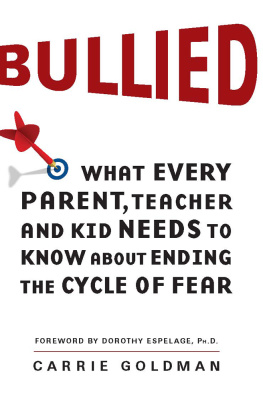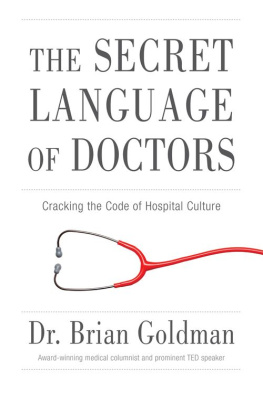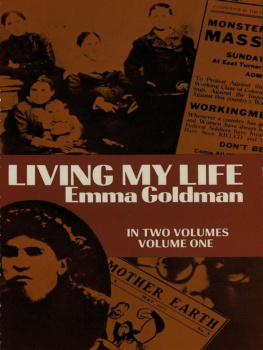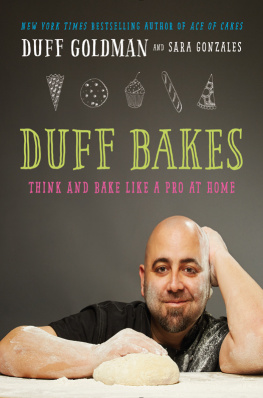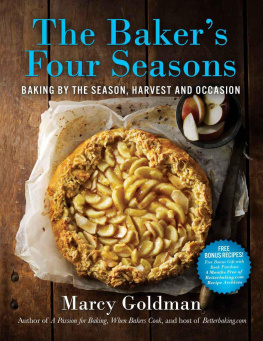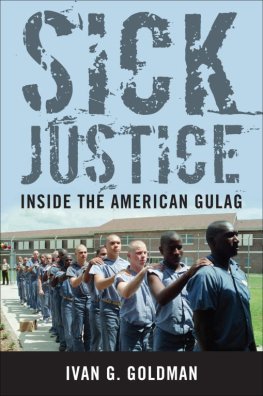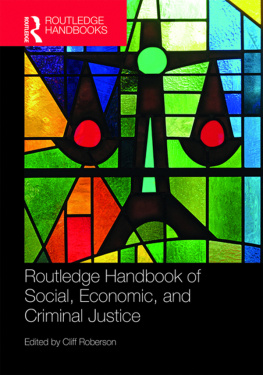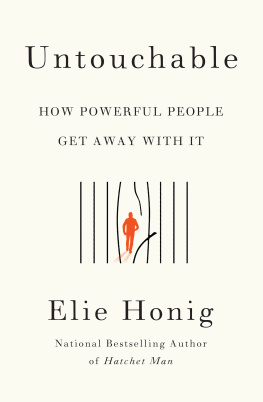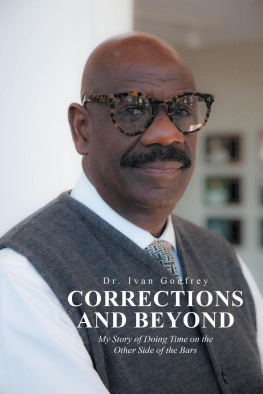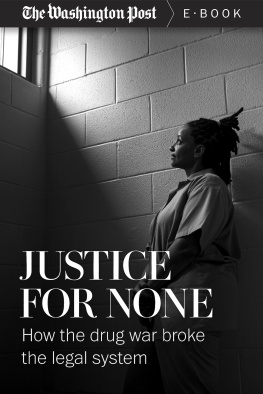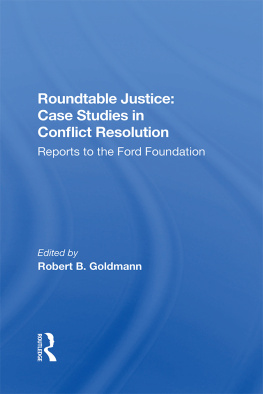SICK JUSTICE
ALSO BY IVAN G. GOLDMAN
Nonfiction
L.A. Secret Police: Inside the LAPD Elite Spy Network
(with Mike Rothmiller)
Fiction
The Barfighter
Exit Blue
Isaac: A Modern Fable
Where the Money Is: A Novel of Las Vegas
RELATED TITLES FROM POTOMAC BOOKS
American Poverty: Presidential Failures and a Call to Action
Woody Klein
Getting Away with Torture: Secret Government,
War Crimes, and the Rule of Law
Christopher H. Pyle
Grave Injustice: Unearthing Wrongful Executions
Richard A. Stack
Not a Choice, Not a Job:
Exposing the Myths about Prostitution and the Global Sex Trade
Janice G. Raymond
SICK JUSTICE
INSIDE THE AMERICAN GULAG
IVAN G. GOLDMAN

2013 by Ivan G. Goldman
All rights reserved
Potomac Books is an imprint of the University of Nebraska Press
Library of Congress Cataloging-in-Publication Data
Goldman, Ivan G.
Sick justice : inside the American Gulag / Ivan G. Goldman. First edition.
pages cm
Includes bibliographical references and index.
ISBN 978-1-61234-487-4 (hardcover : alk. paper)
ISBN 978-1-61234-488-1 (electronic)
1. PrisonsUnited States. 2. CorrectionsUnited States. 3. Criminal justice,
Administration ofUnited States. I. Title.
HV9471.G646 2013
365.973dc23
2013003517
Printed in the United States of America on acid-free paper that meets the American National Standards Institute Z39-48 Standard.
Potomac Books
22841 Quicksilver Drive
Dulles, Virginia 20166
First Edition
10 9 8 7 6 5 4 3 2 1
Lay then the axe to the root, and teach governments humanity.
It is their sanguinary punishments which corrupt mankind.
Thomas Paine, The Rights of Man
Why all this horror? What is it for?
Leo Tolstoy, The Death of Ivan Ilyich
This book is dedicated to the railroaded, double-crossed, abused victims of sick justice, including those who were, in the words of Tolstoy, neglected and twisted like uncared-for plants.
CONTENTS
PREFACE
I COVERED THE CRIMINAL JUSTICE SYSTEM FOR SEVERAL DAILIES, INCLUDING the old Kansas City Times and later the Washington Post. I walked through prison yards, took notes at trials, ate burgers with cops and prosecutors, and even reported a tiny piece of the Watergate stories. Later on I became a boxing writer and wrote about fighters whod turned pro after doing time in prison and others who were locked up after the sport was through with them. Ive paid dues to boxing gyms where a prison record is no more remarkable than an Ivy League degree at a Wall Street bank.
One day someone close to me was scheduled for a hearing on a drug charge, and I showed up to offer moral support. While I waited for that particular hearing, I heard the judge rush though other cases on his roster, one after another, no time to lose. Plea bargains had been settled on most of them. Still, defendants had to confirm in open court that they understood and agreed to the terms, and the court recorder had to get it all down. The judge and the prosecutor shared the chore of reading it all aloud and prompting the defendant to assent from time to time. Defendants were whisked in and out. Few had made bail, so most were in jail jumpsuits, their hands shackled behind them. Relatives looked on with a mixture of concern, resignation, and uncertainty.
One defendant stood out because he was past middle age, much older than the others. A balding black man who looked apologetic for taking up anyones time. The prosecutor clearly liked this particular defendant, who had a friendly demeanor, like someone whod take the time to give you good directions. Hed served a prison sentence decades earlier, and the judge asked the prosecutor the nature of the old offense. Nothing serious, the prosecutor said. He paused and added, Like this one. This one, whatever it was, had earned the man a two-year sentence.
The judge nodded, and seeing nothing extraordinary about sending a man to prison for nothing serious, banged his gavel on the deal. Wait a minute, I said to myself. Why, if the mans old infraction hadnt been serious, did he go to prison for it? And why, if this new offense was also insignificant, were they sending him back? Maybe there was once a time when this judge and prosecutor had asked such questions, but by this point in their careers, they showed all the cognitive curiosity of chrysanthemums. As defendants in chains paraded past them, they just followed the pattern in place and failed to ask the right questions.
The mans offenses werent named in open court. Very typical. Contrary to the spirit and letter of the Sixth Amendment, almost everything important in criminal cases is discussed behind closed doors. Observers miss vital facts in the small portion of the process theyre allowed to see. The public defender looked on, also undisturbed. Shed finished her work when she made the deal for her client. I began taking notes, and that day I put aside the novel I was writing. This book was born.
Years ago a guard discussing an inmate at the Colorado State Penitentiary told me, They dont call them cons just because theyre convicts. Immediately one of his coworkers snickered in a way that told me the guards repeated this particular mantra regularly, reminding one another that when a convict tells you its warm out, you better bring a sweater. And yes, most (but not all) prisoners are guilty as charged. Still, that doesnt end the story. Maybe the defendant really did have drug residue under his fingernails. But a prison sentence wasnt necessarily the best way to address his transgression.
As I sorted through the information for this book, I remembered the Colorado guards adage. What follows is based on facts that cant be refuted or events I saw with my own eyes. In a few rare instances, I couldnt verify a story, but I was careful to identify these cases. There were times, many of them, when I hoped I was being lied to. It would have been a relief to know the story was untrue. No matter how strict I made the criteria, plenty of material remained. The cases cited in this book are the tip of a monstrous, still expanding iceberg.
I thank everyone who helped bring forth this book. That includes my dear wife, Connie Goldman, a sharp editor who cheerfully pulls no punches; my patient, tenacious agent Sally van Haitsma; nurturing, tireless former Potomac Books senior editor Hilary Claggett; indomitable Melissa Jones; Kathryn Owens; Elizabeth Demers; Laura Briggs; Julie Kimmel; and everyone who took the time to answer my questions, especially those who, in order to shine light on stories that ached to be told, unselfishly recalled events theyd prefer to forget.
PART 1
Failed Fears
1
The Mostly Invisible Catastrophe
BRENDA VALENCIA, A NINETEEN-YEAR-OLD WITH NO HISTORY OF DRUG USE or criminal behavior, made a terrible mistake in 1991. She gave a ride to her roommates stepmother, a cocaine dealer. She drove the woman to the West Palm Beach, Florida, home of a man who turned out to be another dealer. Valencia remembers being impressed by the spacious, luxurious house. She watched the World Series on TV with the daughter of the man who lived there, and he and her passenger went outside to talk. The phone rang, and Valencia picked it up. Recalled Valencia, The guy on the end of the line said, Whos this? I told him and asked if I could take a message. He said, Yes, tell him to beep me. There was nothing said about money or drugs. Just, can I take a message? But the prosecution would later argue that this phone call helped prove that Brenda Valencia was part of a conspiracy and that her passenger had picked up some money at the home with Valencias help. Swept up in a raid, Valencia was sentenced to the mandatory minimum. Thats the first thing my lawyer told me, she recalls, the mandatory minimum, that I couldnt get less than twelve years, seven months. I knew I deserved punishment for being stupid. But twelve years, seven months? I couldnt believe it. I tried to tell them, Look at my bank account. Im not a drug dealer. Im a student, just a regular person.
Next page

